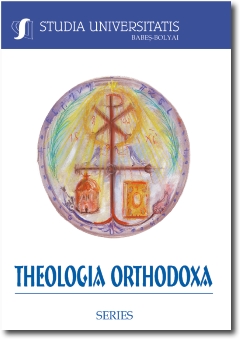PRECURSORII TEOLOGIEI NEGATIVE ÎN TRADIŢIA GREACĂ
PRECURSORS OF THE NEGATIVE THEOLOGY IN GREEK TRADITION
Author(s): Daniel JugrinSubject(s): Christian Theology and Religion
Published by: Studia Universitatis Babes-Bolyai
Keywords: via negativa; negative theology; apophasis; aphairesis; steresis.
Summary/Abstract: Precursors of the Negative Theology in Greek Tradition. Via negativa is the most remarkable feature of the philosophical life of late antiquity, Greek and Christian, and can be defined as the step by step removal of the concrete attributes of a thing, until its essential and transcendent character is revealed. Via negativa proceeds to refine and transcendentalize thought by removing and negating concepts which are part of the sensible world. The negative method is intimately involved with major epistemological themes of Greek philosophy, including the notions of unity, being, reason, thought and the logic of predication. It is a matter not only of Greek logic, but also of ontology, since it involves the notion of the incremental generation of reality, by interrelated interconnected stages. Two distinct technical terms mark the Greek view of negation: ἀπόφασις is the basic word for negation, whereas ἀφαίρεσις (or “abstraction”) frequently comes close to it. The notion of exclusion is strong in apophasis, and Plato uses negation in this way, defining the rest as the denying of motion. Deriving from aphaireo, the notion of abstraction refers fundamentally to an act of taking away, or the removal of something. Both negation and abstraction come close to another notion in Aristotle, that of privation (στέρησις) and all three may refer to a process of intellectual removal of a characteristic. Negation seems, then, to amount to depriving an entity of a characteristic.
Journal: Studia Universitatis Babes-Bolyai - Theologia Orthodoxa
- Issue Year: LV/2010
- Issue No: 2
- Page Range: 195-210
- Page Count: 16
- Language: Romanian

